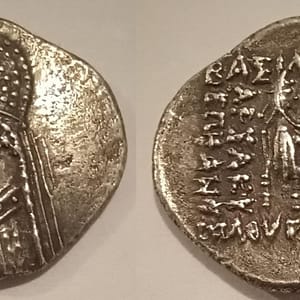Description
Imagine holding 2500 years old coin in your hand ? the feeling is beyond words…
Indeed, this majesty can only be felt and experienced at House of Emirates®, here you have incredible silver Siglo from the time of the persian king Darius I The Great around 500 BC.
Very fine Silver Siglo, Achaemenid Kings
Darius I- Xerxes II
Ca. 5th century BC
Diameter: 16,12 mm
Weight: 5,55 g
Test marks
Free Worldwide Shipping
Darius I, also known as Darius the Great, was the third Persian king of the Achaemenid Empire, reigning from 522 BC to 486 BC. He is remembered as one of the greatest rulers of ancient Persia, known for his administrative genius, military campaigns, and contributions to Persian culture and infrastructure.
Darius came to power through a series of events that included the assassination of the previous king, Cambyses II, and a period of political unrest known as the Magian Revolt. He stabilized the empire, expanded its borders, and implemented a system of administration that organized the vast territories under his rule into provinces called satrapies, each governed by a satrap. He also established a standardized system of coinage, weights, and measures, known as the Daric.
Darius is perhaps best known for his military campaigns, including the conquest of Thrace, Macedonia, and the invasion of Greece, which culminated in the famous Battle of Marathon in 490 BC. Despite his defeat at the hands of the Athenians at Marathon, Darius continued to expand his empire, conquering lands in Asia Minor, Egypt, and the Indus Valley.
Darius was also a patron of the arts and architecture, commissioning many construction projects throughout the empire, including the construction of the Royal Road, a network of roads that facilitated communication and trade within the empire. He also built the magnificent palace complex at Persepolis, which served as the ceremonial capital of the empire.
Darius died in 486 BC and was succeeded by his son, Xerxes I. He left behind a legacy of administrative innovation, military prowess, and cultural achievement that would shape the course of Persian history for centuries to come.





